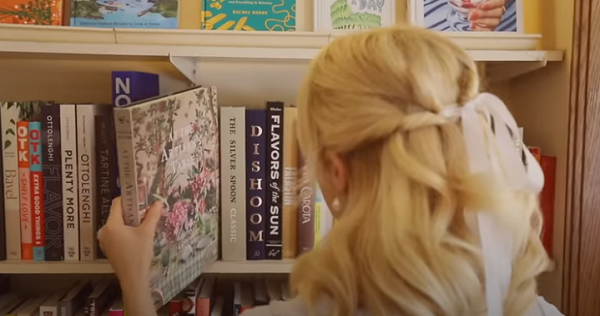
During the horrifically micro-managed Spring of 2020, where masks became an icon for oppression and subversion, and fear-mongering resulted in Americans wearing face coverings jogging in a trail adjacent to a tree falling in the forest with no one around to hear it, literary sales skyrocketed. As hypochondriacs barricaded themselves inside their domiciles and checked off the best seller list, there was hope that the cumulative IQ of society languishing and waning amid the data flood of the information age would be bolstered. Unfortunately, the temporary ingestion of riveting and thought-provoking content only managed to degrade critical thinking skills, and the fad of serial reading quickly dissipated into universal inanity.
For veteran readers and regular library patrons the cultural phenomenon sparked a noticeable detriment in the poignancy and savage brutality of plots and character developments, as writers attempting to keep up with the spiking demand, coupled with the haze created by the lockdowns, showed a perceptible decay in literary quality and vibrancy. This troubling theme is still apparent in 2023, as the world recovers from a tense slumber. It’s as if the lack of interpersonal interactions, as most fictional authors lean to the left side of the political spectrum and conformed to the social distancing restrictions, were plagued by mental and emotional fatigue in attaining mediocrity in the absence of the expected brilliance.
To be fair to the artists and sculptors of the written word, the entire creative industry was ransacked by unprecedented stresses of existing within the ecosystem of a pandemic, where society was constantly bombarded by unsettling and just plain horrific news stories disseminated through mass media, with the unknown the underlying theme to each narrative causing widespread panic. While the visceral toll cannot be discounted as a major factor in fictional plots lacking the traditional esoteric edginess, other forces were at play stifling innovation amid a storm of fabricated terror.
According to Wordsrated.com, expenditure by Americans on books surged 22% in 2020, straining the already thin supply chain of intellectual property during the apex of the plague. Even as bookstores were shuttered due to the Amazon factor, the industry enjoyed a brief renaissance. While serial readers rekindled a love affair with classic pulp and trending e-books, the market growth among lower income demographics was a noticeable development, as individuals and families attempted to fill the void left by empty schools, workplaces, movie theaters, sporting events, and the aforementioned bookstores. Niche themes exploded off the digital shelves, as binge reading became hip. However, as the tempest waned in 2021 and consumers dug themselves out from beneath the monumental blizzard, the figures were normalized as the country once again opened up their collective front door to a fresh and healing breeze. With the school-aged younger generations hitting a brick wall in intellectual development through the adoption of remote learning politics, the coming decades will be a challenge that the nation faces in the propagation of critical thinking skills, and reading and writing aptitude.
The decrease in scintillating and irreverent content was not confined to the literary realm, as digital journalism and the intrigue of resounding information featured on search engines and social media also took a major hit. Unfortunately, for the the near future, those playing societal engineers failed to extrapolate crucial data and weigh scenarios in a reckless indifference to the long-term effects of destructive lockdowns, the consequences of which will not be apparent for years if not decades. The irony was lost on the anecdotal. While connoisseurs of fiction have noticed a slight phase shift in the creative process and a subtle dulling of poignancy in contemporary novels, this disturbing bi-product of unchecked bureaucracy is an indication original thought gradually and painfully wasting away.
With waning attention spans measured in under the time it takes the average teenager to text/post/bare their souls to the Chinese government, the days of a fiction marketplace may be numbered, and hopefully the figureheads of commercial writers will once again regain their form and not go down without a fight. However, with expectations for stirring rhetoric declining as the older get older, and the younger wallow in the comforts of the oblivious, “best seller” is becoming a dinosaur term facing extinction among the deluge of the Information Age. The world will never again be the same.